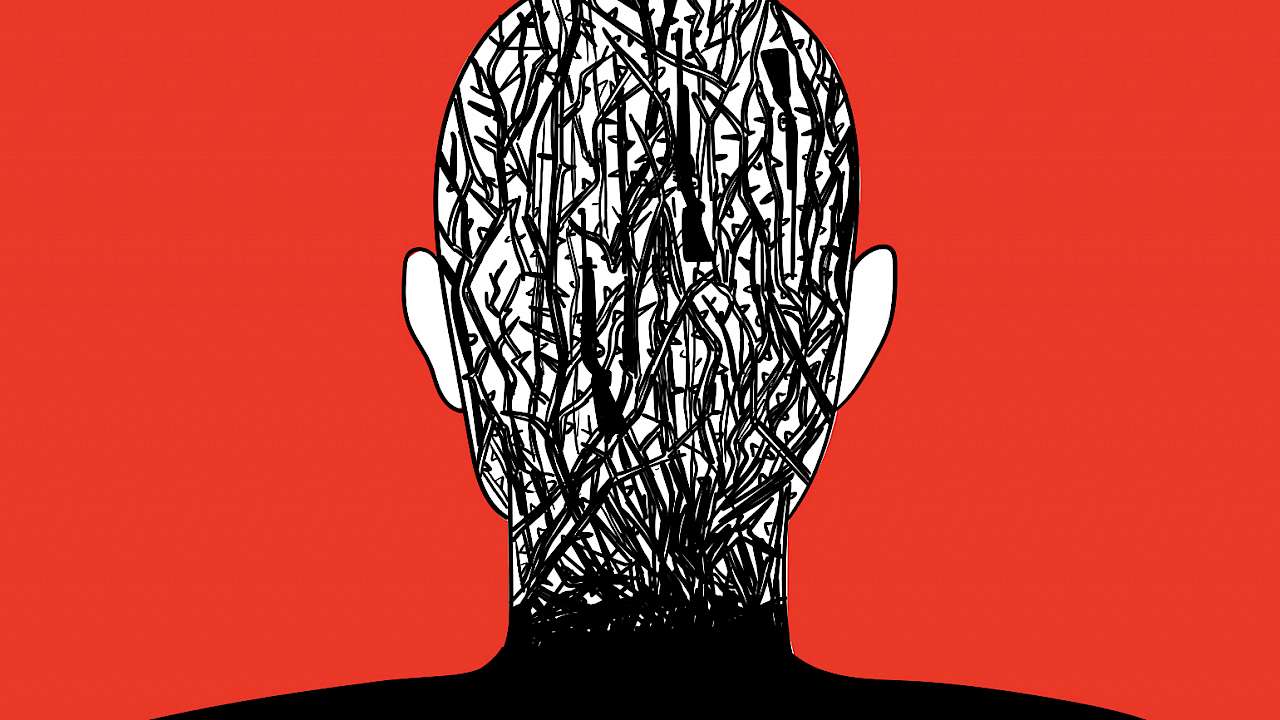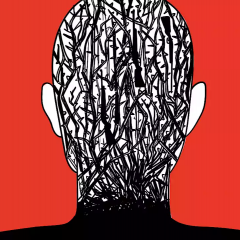Executive summary
Research on violent extremism has found that individual processes of radicalisation are driven by a complex intersection of ‘push’ and ‘pull’ factors (Lewis & Marsden, 2021). In recent years, researchers have started to explore whether insights from the academic literature on trauma might advance our understanding of how these factors contribute to radicalisation. This research includes empirical studies into radicalisation pathways that have used trauma-informed frameworks (e.g. Windisch et al., 2020), as well as theoretical studies identifying potential synergies between these literatures (e.g. Koehler, 2020). This is a promising development within research on violent extremism but is a field of inquiry still in its infancy.
It is not yet possible to draw definitive conclusions on how research on trauma might be best utilised in work on violent extremism, or the specific ways in which trauma-informed frameworks might inform research and practice in this space. This report explores the potential utility of developing this research agenda further by identifying synergies between research on trauma and violent extremism, and by discussing the implications that these synergies might have for researchers and practitioners.
This report takes a broader approach than previous analyses by exploring how research on the direct and indirect effects of trauma might advance our understanding of radicalisation. Existing studies into the relationship between trauma and violent extremism have primarily focused on the former, including examining how direct exposure to personal traumas, such as adverse childhood experiences (ACEs), or collectively traumatic events such as war, might contribute to radicalisation (e.g. Windisch et al., 2020; Ellis et al., 2015a). These studies are in line with an established body of evidence that has shown that personal experiences of trauma can lead to maladaptive psychological and behavioural outcomes (Felitti et al., 1998).
There is also robust evidence to suggest that negative psychological and behavioural outcomes can be transmitted across generations and that individuals who are exposed to the lasting effects of historical traumas experienced by their ancestors are more likely to develop trauma symptomology than their peers (Lambert et al., 2014). However, researchers have yet to explore the applicability of this research to work on violent extremism. To advance this research agenda, this report explores research on the direct effects of personal and collective trauma, as well as the indirect effects of historical and intergenerational trauma, and discusses how knowledge about these causal pathways might be utilised in research on radicalisation.
Key points
There is obvious utility in continuing to explore the relationship between trauma and violent extremism, and the practical implications of applying a trauma lens to work in this space. There are promising synergies between research into the psychological and behavioural effects of different forms of trauma and recent empirical research into the causal pathways that underpin the radicalisation process (Lewis & Marsden, 2021). Countering violent extremism interventions also appear to be increasingly aligned with, and in some cases directly informed by, the principles of trauma-focused and trauma-informed interventions.
The most direct synergy between the two literatures is research exploring the behavioural and psychological impacts of ACEs. The evidence base linking ACEs to involvement in violent extremism remains limited, but preliminary conclusions can be drawn:
- A small number of empirical studies into individual engagement in violent extremism have identified personal experiences of trauma (including ACEs) as a potential push factor for radicalisation. However, the relative importance of trauma as a driver remains unclear given that most people who experience trauma do not become radicalised.
- The broader literature on ACEs has been better able to identify causal pathways between trauma and maladaptive psychological and behavioural outcomes than the literature on radicalisation, and so further exploration of this evidence would be useful.
There are promising synergies between research on the social ecology of radicalisation and on intergenerational, historical, and collective trauma.
- Research has found that the psychological and behavioural impacts of trauma on the individual are often rooted in historical and/or contemporary collective experiences.
- This aligns with research that finds that individual participation in violent extremism is often rooted in lived or perceived collective experience, and is often framed by narratives that draw heavily on these events. Notably, many of the collective experiences identified in work on radicalisation (such as lived or perceived experiences of discrimination; structural or societal inequalities; or the holding of political grievances) have been analysed through a trauma lens within the literature on trauma.
- More work is needed to understand how existing analyses of collective experiences across both literatures relate to each other, and whether a trauma-informed approach would help to illuminate how collective experience shapes individual terrorist action.
Recent developments in trauma-informed care align with contemporary research into the social ecology of preventing and countering violent extremism (P/CVE) interventions:
- Trauma-informed interventions recognise that individual responses to circumstances are not simply driven by the biophysical characteristics of the individual, but how these characteristics intersect with social, environmental and ecological factors. Interventions seek to identify those micro, meso, and macro-level factors which help to explain what happened to the individual (i.e. why they were exposed to a specific experience) and why that experience came to have specific psychological and behavioural impacts so that they can address the causes and consequences of trauma.
- Multi-dimensional trauma-informed interventions map closely onto multi-agency P/CVE interventions such as the UK’s Channel programme. However, trauma-informed approaches more explicitly identify potential causal factors operating at different levels of an individual’s social ecology and design appropriate support to tackle each one in turn.
- The trauma-informed approach may provide a foundation for delivering P/CVE interventions targeted at the individual level that more explicitly attend to the social and ecological factors that contribute to engagement in, and inhibit disengagement from, violent extremism. However, more research into the practical implications and benefits of utilising this approach in P/CVE work is needed.
Trauma-informed frameworks could potentially be used to embed procedural justice into P/CVE interventions. The principles of trauma-informed care map closely onto the principles of ‘procedural justice’, which is crucial to ensuring that the public trusts and is willing to co-operate with the counter-terrorism system (Lewis & Marsden, 2021). Further research into the synergies between these frameworks, and the subsequent implications for P/CVE, may therefore be useful.
Directions for future research
At this stage, it is not possible to make a definitive judgement on how the research on trauma might be best utilised in work on violent extremism. Further research will be needed to explore the preliminary synergies between the two literatures presented in this report. To guide this effort, the authors have identified several questions to inform further discussion about the potential benefits of bringing these two bodies of work into closer dialogue. These include questions to inform future research into radicalisation pathways, and research that might inform the development and delivery of trauma-informed and trauma-focused P/CVE interventions:
- Evidence for the causal pathways linking ACEs with maladaptive outcomes is more robust than existing evidence on radicalisation pathways. How could research on ACEs be used to better understand the radicalisation process?
- The work on ACEs draws attention to how involvement in harmful or illegal activities can be considered an adaptive response to living in challenging contexts and being subject to difficult experiences. How might this understanding be translated into research and practice on violent extremism?
- Increasingly, research on trauma is taking a multi-systemic approach to interpreting how and why people become involved in harmful activities by taking account of the multiple, interacting factors which operate across levels of analysis and which cluster together in particular social settings. What might a comparable multi-systemic approach to violent extremism be able to learn from this literature?
- How well do biopsychosocial models of trauma, and resilience to trauma, map onto socio-ecological models of radicalisation? Could these models help to better understand how social, environmental, and individual factors coalesce to drive radicalisation, and in turn inform the design of socio-ecological-informed interventions?
- Research on trauma offers a broader framework for understanding the medium to long-term causal processes that might inform maladaptive behaviour. What insights might be possible in research on violent extremism by shifting attention from the question of what risk and protective factors are present/absent to asking why those who become involved in violent extremism might embody or come to manifest those factors?
- What are the implications of research on collective mass trauma, including exposure to political violence, for efforts to facilitate the disengagement and reintegration of returning foreign terrorist fighters? What lessons can be drawn from trauma-informed interventions developed for refugees and asylum seekers fleeing violence?
- By trying to interpret how life choices and chances are informed by cultural and historical events, such as experiences of discrimination or repression, research on intergenerational and historical trauma centres the role of politics in research on what shapes behaviour. Given the increasing focus on often apolitical, individual-level risk factors, such as low self-control, or mental health problems in radicalisation research, what might be gained by looking more broadly at how political events are experienced, perceived and transmitted at the social and cultural level? How might this approach help interpret why extremist ideologies take hold in particular settings?
- Looking at intergenerational processes foregrounds the importance of time. What insights might be possible by asking how involvement in violent extremism is informed by interactions between biophysical, micro, meso, exo, macro and chronosystems?
- What insights from the literature on trauma might help inform interventions that are: better equipped to recognise the sometimes-adaptive nature of involvement in violent extremism; designed to address the clusters of factors that characterise challenging social contexts; take a trauma-informed approach to acknowledging the local and global histories that can inform harmful behaviour; and recognise the explicitly political and ideological features of these dynamics?
Read more
- Agnew, R. (1992). Foundation for a General Strain Theory of Crime and Delinquency. Criminology, 30:1, 47–88
- Al-Attar, Z. (2020). Severe Mental Disorder and Terrorism: When Psychosis, PTSD and Addictions Become a Vulnerability. The Journal of Forensic Psychiatry and Psychology, 31:6, 950–970
- Allan, J. (2015). Reconciling the 'Psycho-Social/ Structural' in Social Work Counselling with Refugees. British Journal of Social Work, 45:6, 1699–1716
- Argomaniz, J. & Lynch, O. (2018). Introduction to the Special Issue: The Complexity of Terrorism—Victims, Perpetrators and Radicalization. Studies in Conflict & Terrorism, 41:7, 491–506
- Atallah, D. G. (2017). A Community-Based Qualitative Study of Intergenerational Resilience with Palestinian Refugee Families Facing Structural Violence and Historical Trauma. Transcultural Psychiatry, 54:3, 357–383
- Baglivio, M. T. & Epps, N. (2015). The Interrelatedness of Adverse Childhood Experiences Among High-Risk Juvenile Offenders. Youth Violence and Juvenile Justice
- Baglivio, M. T., Wolff, K. T. & Epps, N. (2021). Violent Juveniles’ Adverse Childhood Experiences: Differentiating Victim Groups. Journal of Criminal Justice, 72, 101769
- Barker, B., Goodman, A. & DeBeck, K. (2017). Reclaiming Indigenous Identities: Culture as Strength Against Suicide Among Indigenous Youth in Canada. Canadian Journal of Public Health, 108, 208–210
- Baron, S. W. (1997). Canadian Male Street Skinheads: Street Gang or Street Terrorists? Canadian Review of Sociology/Revue Canadienne De Sociologie, 34:2, 125–154
- Baron, S. W. & Forde, D. R. (2020). Childhood Trauma, Crimogenic Social Schemas and Violent Crime. Deviant Behavior, 41:8, 991–1004
- Becker, M. H., Decker, S. H., LaFree, G., Pyrooz, D. C., Ernest, K. & James, P. A. (2020). A Comparative Study of Initial Involvement in Gangs and Political Extremism. Terrorism and Political Violence
- Benson, M. A., Abdi, S. M., Miller, A. B., & Ellis, B. H. (2018). Trauma Systems Therapy for Refugee Children and Families. In Morina, N. & Nickerson, A. (eds.) Mental Health of Refugee and Conflict-Affected Populations, Cham, Switzerland: Springer, 243–259
- Bhui, K., Otis, M., Silva, M. J., Halvorsrud, K., Freestone, M. & Jones, E. (2020). Extremism and Common Mental Illness: Cross-Sectional Community Survey of White British and Pakistani Men and Women Living in England. The British Journal of Psychiatry, 217, 547–554
- Bont, E. (2020). Moral Injury in Provisional IRA Members: Preliminary Evidence of Moral Beliefs Injuring, Protecting & Disillusioning. Terrorism and Political Violence
- Bosley, C. (2020). Violent Extremist Disengagement and Reconciliation: A Peacebuilding Approach. Washington, DC: USIP
- Bouzar, D. (2017). A Novel Motivation-based Conceptual Framework for Disengagement and De-radicalization Programs. Sociology and Anthropology, 5:8, 600–614
- Briggs, A. (2013). The School Psychologist as Social Justice Advocate. In Shriberg, D., Song, S. Y., Miranda, A. H. & Radliff, K. M. (eds.) School Psychology and Social Justice: Conceptual Foundations and Tools for Practice, New York, NY: Routledge, 294–310
- Briere, J. N. & Scott, C. (2015). Principles of Trauma Therapy: A Guide to Symptoms, Evaluation and Treatment. London: Sage [Second Edition]
- Bubolz, B. F. & Simi, P. (2019). The Problem of Overgeneralization: The Case of Mental Health Problems and U.S. Violent White Supremacists. American Behavioral Scientist
- Bunting B. P., Ferry F. R., Murphy S. D., O'Neill, S. M. & Bolton, D. (2013). Trauma Associated with Civil Conflict and Posttraumatic Stress Disorder: Evidence from the Northern Ireland Study of Health and Stress. Journal of Traumatic Stress, 26:1, 134–141
- Campelo, N., Bouzar, L., Oppetit, A., Pellerin, H., Hefez, S., Bronsard, G., Cohen D. & Bouzar, D. (2018). Joining the Islamic State from France between 2014 and 2016: An Observational Follow-up Study. Palgrave Communication, 4:137
- Canetti, D., Elad-Strenger, J., Lavi, I., Guy, D. & Bar-Tal, D. (2017). Exposure to Violence, Ethos of Conflict, and Support for Compromise: Surveys in Israel, East Jerusalem, West Bank, and Gaza. Journal of Conflict Resolution, 61:1, 84–113
- Cerdeña, J. P., Rivera, L. M., Spak, J. M. (2021). Intergenerational Trauma in Latinxs: A Scoping Review. Social Science & Medicine, 270, 113662
- Chandler, M. J. & Lalonde, C. (1998). Cultural Continuity as a Hedge against Suicide in Canada's First Nations. Transcultural Psychiatry, 35:2, 191–219
- Cherney, A. & Murphy, K. (2017). Police and Community Cooperation in Counterterrorism: Evidence and Insights from Australia. Studies in Conflict and Terrorism. 40:12, 1023–1037
- Cherney, A., Belton, E., Amirah Binte Norham, S. & Milts, J. (2020). Understanding Youth Radicalisation: An Analysis of Australian Data. Behavioural Sciences of Terrorism and Political Aggression
- Clemmow, C., Schumann, S., Salman, N. L. & Gill, P. (2020). The Base Rate Study: Developing Base Rates for Risk Factors and Indicators for Engagement in Violent Extremism. Journal of Forensic Sciences, 65:3, 865–881
- Connolly, E. J. (2020). Further Evaluating the Relationship Between Adverse Childhood Experiences, Antisocial Behavior, and Violent Victimization: A Sibling-Comparison Analysis. Youth Violence and Juvenile Justice, 18:1, 3–23
- Corner, E. & Gill, P. (2020). Psychological Distress, Terrorist Involvement and Disengagement from Terrorism: A Sequence Analysis Approach. Journal of Quantitative Criminology, 36, 499–526
- Craig, J. M., Baglivio, M. T., Wolff, K. T., Piquero, A. R. & Epps, N. (2017). Do Social Bonds Buffer the Impact of Adverse Childhood Experiences on Reoffending? Youth Violence and Juvenile Justice, 15:1, 3–20
- Craig, J. M. & Zettler, H. R. (2021). Are the Effects of Adverse Childhood Experiences on Violent Recidivism Offense-Specific? Youth Violence and Juvenile Justice, 19:1, 27–44
- Cullen, P., Mackean, T., Walker, N., Coombes, J., Bennett-Brook, K., Clapham, K., Ivers, R., Hackett, M., Worner, F. & Longbottom, M. (2021). Integrating Trauma and Violence Informed Care in Primary Health Care Settings for First Nations Women Experiencing Violence: A Systematic Review. Trauma, Violence and Abuse
- Cummings, E. M., Schermerhorn, A. C., Merrilees, C. E., Goeke-Morey, M. C., Shirlow, P. & Cairns, E. (2010). Political Violence and Child Adjustment in Northern Ireland: Testing Pathways in a Social-Ecological Model Including Single- and Two-Parent Families. Developmental Psychology, 46:4, 827–841
- Cummings, E. M., Goeke-Morey, M., Merrilees, C. E., Taylor L. K. & Shirlow P. (2014). A Social-Ecological, Process-Oriented Perspective on Political Violence and Child Development. Child Development Perspectives, 8:2, 82–89
- Cypress, B, S. (2021). Collective Trauma: An Evolutionary Concept Analysis. Nursing Forum
- Dashorst, P., Mooren, T. M., Kleber, R. J., de Jong, P. J. & Huntjens, R. J. C. (2019). Intergenerational Consequences of the Holocaust on Offspring Mental Health: A Systematic Review of Associated Factors and Mechanisms. European Journal of Psychotraumatology, 10:1, 1654065
- De Marinis, V. & Boyd-MacMillan, E. (2019). A Mental Health Approach to Understanding Violent Extremism. Paris: Radicalisation Awareness Network.
- DeLisi, M., Alcala, J., Kusow, A., Hochstetler, A., Heirigs, M. H., Caudill, J. W., Trulson, C. R. & Baglivio, M. T. (2017). Adverse Childhood Experiences, Commitment Offense, and Race/Ethnicity: Are the Effects Crime-, Race-, and Ethnicity-Specific? International Journal of Environmental Research and Public Health, 14, 331
- Denov, M., Fennig, M., Aude Rabiau, M. & Shevell, M. C. (2019). Intergenerational Resilience in Families Affected by War, Displacement, and Migration: "It runs in the family". Journal of Family and Social Work, 22:1, 17–45
- Dhumad, S., Candilis, P. J., Cleary, S. D., Dyer, A. R & Khalifa, N. (2020). Risk Factors for Terrorism: A Comparison of Family, Childhood, and Personality Risk Factors among Iraqi Terrorists, Murderers, and Controls. Behavioural Sciences of Terrorism and Political Aggression, 12:1, 72–88
- Dorado, J. S., Martinez, M., McArthur, L. E., & Leibovitz, T. (2016). Healthy Environments and Response to Trauma in Schools (HEARTS): A whole-school, multi-level, prevention and intervention program for creating trauma-informed, safe and supportive schools. School Mental Health, 8(1), 163–176
- El-Amraoui, A. F. & Ducol, B. (2019). Family-Oriented P/CVE Programs: Overview, Challenges and Future Directions. Journal for Deradicalization, 19, 190–231
- Ellis, B. H., Abdi, S. M., Horgan, J., Miller, A. B., Saxe, G. N. & Blood, E. (2015a). Trauma and Openness to Legal and Illegal Activism Among Somali Refugees. Terrorism and Political Violence, 27, 857–883
- Ellis, B. H., Abdi, S. M., Lazarevic, V., White, M. T., Lincoln, A. K., Stern, J. E. & Horgan, J. G. (2015b). Relation of Psychosocial Factors to Diverse Behaviors and Attitudes Among Somali Refugees. American Journal of Orthopsychiatry
- Ellis, B. H., Sideridis, G., Miller, A. B., Abdi, S. M. & Winer, J. P. (2019). Trauma, Trust in Government, and Social Connection: How Social Context Shapes Attitudes Related to the Use of Ideologically or Politically Motivated Violence. Studies in Conflict & Terrorism
- Ellis, B. H., Miller, A. B., Schouten, R., Agalab, N. Y. & Abdi, S. M. (2020a). The Challenge and Promise of a Multidisciplinary Team Response to the Problem of Violent Radicalization. Terrorism and Political Violence, Early Access Article
- Ellis, B. H., Cardeli, E., Bloom, M., Brahmbhatt, Z., & Weine, S. (2020b). Understanding the Needs of Children Returning from Formerly ISIS-Controlled Territories through an Emotional Security Theory Lens: Implications for Practice. Child Abuse & Neglect, 109, 104754
- Fargas-Malet, M. & Dillenburger, K. (2016). Intergenerational Transmission of Conflict-Related Trauma in Northern Ireland: A Behavior Analytical Approach. Journal of Aggression, Maltreatment & Trauma, 25:4, 436–454
- Fazel, M., & Stein, A. (2002). The Mental Health of Refugee Children. Archives of Disease in Childhood, 87, 366–370
- Felitti, V. J., Anda, R. F., Nordenberg, D., Williamson, D. F., Spitz, A. M., Edwards, V., Koss, M. P. & Marks, J. S. (1998). Relationship of Childhood Abuse and Household Dysfunction to Many of the Leading Causes of Death in Adults: The Adverse Childhood Experiences (ACE) Study. American Journal of Preventive Medicine, 14:4, 245–258
- Fennig, M. & Denov, M. (2019). Regime of Truth: Rethinking the Dominance of the Bio-Medical Model in Mental Health Social Work with Refugee Youth. British Journal of Social Work, 49, 300–317
- Ferry, F., Bunting, B., Murphy, S., O’Neill, S., Stein, D. & Koenen, K. (2014). Traumatic Events and their Relative PTSD Burden in Northern Ireland: A Consideration of the Impact of the ‘Troubles’. Social Psychiatry and Psychiatric Epidemiology (49), 435–446
- Flanagan, N., Travers, A., Vallières, F., Hansen, M., Halpin, R., Sheaf, G., Rottmann, N. & Johnsen, A. T. (2020). Crossing Borders: A Systematic Review Identifying Potential Mechanisms of Intergenerational Trauma Transmission in Asylum-Seeking and Refugee Families. European Journal of Psychotraumatology, 11:1, 1790283
- Ford, K., Barton, E. R., Newbury, A., Hughes, K., Bezeczky, Z., Roderick, J. & Bellis, M. A. (2019). Understanding the Prevalence of Adverse Childhood Experiences (ACEs) in a Male Offender Population in Wales: The Prisoner ACE Survey. Cardiff: Public Health Wales; Wrexham: Bangor University
- Fox, B. H., Perez, N., Cass, E., Baglivio, M. T. & Epps, N. (2015). Trauma Changes Everything: Examining the Relationship between Adverse Childhood Experiences and Serious, Violent and Chronic Juvenile Offenders. Child Abuse & Neglect, 46, 163–173
- Franke, H. A. (2014). Toxic Stress: Effects, Prevention and Treatment, Children, 1, 390–402
- Gameon, J. A. & Skewes, M. C. (2020). A Systematic Review of Trauma Interventions in Native Communities. American Journal of Community Psychology, 65, 223–241
- Gill, P., Clemmow, C., Hetzel, F., Rottweiler, B., Salman, N., Van Der Vegt, I., Marchment, Z., Schumann, S., Zolghadriha, S., Schulten, N., Taylor, H. & Corner, E. (2021). Systematic Review of Mental Health Problems and Violent Extremism. The Journal of Forensic Psychiatry & Psychology, 32:1, 51–78
- Gillespie-Smith, K., Brodie, Z., Collins, K., Deacon, K. & Goodall, K. (2020). Moving Towards Trauma-informed Policing : An Exploration of Police Officer's Attitudes and Perceptions Towards Adverse Childhood Experiences (ACEs). The Scottish Institute for Policing Research
- Gone, J. P., Hartmann, W. E., Pomerville, A., Wendt, D. C., Klem, S. H. & Burrage, R. L. (2019). The Impact of Historical Trauma on Health Outcomes for Indigenous Populations in the USA and Canada: A Systematic Review. American Psychologist, 74:1, 20–35
- Goodman, R. D. (2013). The Transgenerational Trauma and Resilience Genogram, Counselling Psychology Quarterly, 26:3-4, 386–405
- Greene, C. A., Haisley, L., Wallace, C. & Ford, J. D. (2020). Intergenerational Effects of Childhood Maltreatment: A Systematic Review of the Parenting Practices of Adult Survivors of Childhood Abuse, Neglect, and Violence. Clinical Psychology Review, 80, 101891
- Gøtzsche-Astrup, O. (2018). The Time for Causal Designs: Review and Evaluation of Empirical Support for Mechanisms of Political Radicalisation. Aggression and Violent Behavior, 39, 90–99
- Gøtzsche-Astrup, O. (2020). Pathways to Violence: Do Uncertainty and Dark World Perceptions Increase Intentions to Engage in Political Violence? Behavioral Sciences of Terrorism and Political Aggression
- Grossman, M., Ungar, M., Brisson, J., Gerrand, V., Hadfield, K. and Jefferies, P. (2017). Understanding Youth Resilience to Violent Extremism: A Standardised Research Measure. Victoria, Australia: Alfred Deakin Institute for Citizenship and Globalisation, Deakin University
- Grossman, M., Hadfield, K., Jefferies, P., Gerrand, V. & Ungar, M. (2020). Youth Resilience to Violent Extremism: Development and Validation of the BRAVE Measure. Terrorism and Political Violence
- Harpviken, A. N. (2020). Psychological Vulnerabilities and Extremism Among Western Youth: A Literature Review. Adolescent Research Review, 5, 1–26
- Heberle, A. E., Obus, E. A. & Gray, S.A. (2020). An Intersectional Perspective on the Intergenerational Transmission of Trauma and State-Perpetrated Violence. Journal of Social Issues, 76, 814–834
- Hill, K. G., Howell, J. C., Hawkins, J. D. & Battin-Pearson, S. R. (1998). Childhood Risk Factors for Adolescent Gang Membership: Results from the Seattle Social Development Project. Journal of Research in Crime and Delinquency, 36:3, 300–322
- Hirsch-Hoefler, S., Canetti, D., Rapaport, C. & Hobfoll, S. E. (2016). Conflict will Harden your Heart: Exposure to Violence, Psychological Distress, and Peace Barriers in Israel and Palestine. British Journal of Political Science, 46:4, 845–859
- Hornor, G. (2015). Childhood Trauma Exposure and Toxic Stress: What the PNP Needs to Know. Journal of Pediatric Health Care, 29:2, 191–198
- Huq, A. Z., Tyler, T. R & Schulhofer, S. J. (2011). Mechanisms for Eliciting Cooperation in Counterterrorism Policing: Evidence from the United Kingdom. Journal of Empirical Legal Studies, 8:4, 728–761
- Isobel, S., Goodyear, M. & Foster, K. (2017). Psychological Trauma in the Context of Familial Relationships: A Concept Analysis. Trauma, Violence & Abuse
- Isobel, S., Goodyear, M., Furness, T. & Foster, K. (2019). Preventing Intergenerational Trauma Transmission: A Critical Interpretive Synthesis. Journal of Clinical Nursing, 28, 1100–1113
- Isobel, S., McCloughen, A., Goodyear, M. & Foster, K. (2021). Intergenerational Trauma and its Relationship to Mental Health Care: A Qualitative Inquiry. Community Mental Health Journal, 57, 631–643
- Jasko, K., LaFree, G. & Kruglanski, A. (2017). Quest for Significance and Violent Extremism: The Case of Domestic Radicalization. Political Psychology, 38:5, 815–831
- Jensen, T. K., Fjermestad, K. W., Granly, L. & Wilhelmsen, N. H. (2015). Stressful Life Experiences and Mental Health Problems Among Unaccompanied Asylum-Seeking Children. Clinical Child Psychology and Psychiatry, 20:1, 106–116
- Jeyasundaram, J., Yao Dan Cao, L. & Trentham, B. (2020). Experiences of Intergenerational Trauma in Second-Generation Refugees: Healing through Occupation. Canadian Journal of Occupational Therapy, 87:5, 412–422
- Johnstone, L. & Boyle, M. with Cromby, J., Dillon, J., Harper, D., Kinderman, P., Longden, E., Pilgrim, D. & Read, J. (2018). The Power Threat Meaning Framework: Towards the Identification of Patterns in Emotional Distress, Unusual Experiences and Troubled or Troubling Behaviour, as an Alternative to Functional Psychiatric Diagnosis. Leicester: British Psychological Society
- Joo-Castro, L. & Emerson, A. (2020). Understanding Historical Trauma for the Holistic Care of Indigenous Populations: A Scoping Review. Journal of Holistic Nursing
- Jud, A., Pfeiffer, E. & Jarczok, M. (2020). Epidemiology of Violence Against Children in Migration: A Systematic Literature Review. Child Abuse & Neglect, 108, 104634
- Kaczkowski, W., Swartout, K. M., Branum-Martin, L., Horgan, J. G. & Lemieux, A. F. (2020). Impact of Perceived Peer Attitudes and Social Network Diversity on Violent Extremist Intentions. Terrorism and Political Violence, Early Access Article
- Kaplin, D., Parente, K. & Santacroce, F. A. (2019). A Review of the Use of Trauma Systems Therapy to Treat Refugee Children, Adolescents, and Families, Journal of Infant, Child, and Adolescent Psychotherapy, 18:4, 417–431
- Kazlauskas, E., Gailiene, D., Vaskeliene, I. & Skeryte-Kazlauskiene, M. (2017). Intergenerational Transmission of Resilience? Sense of Coherence is Associated between Lithuanian Survivors of Political Violence and their Adult Offspring. Frontiers in Psychology, 8, 1677
- Kellerman, N. P. (2001). Transmission of Holocaust Trauma‐An Integrative View. Psychiatry, 64:3, 256–267
- Koehler, D. & Fiebig, V. (2019). Knowing What to Do: Academic and Practitioner Understanding of How to Counter Violent Radicalization. Perspectives on Terrorism, 13:3, 44–62
- Koehler, D. (2020). Violent Extremism, Mental Health and Substance Abuse Among Adolescents: Towards a Trauma Psychological Perspective on Violent Radicalization. The Journal of Forensic Psychiatry & Psychology, 31:3, 455–472
- Krogh, K. & Lundesgaard, A. (2018). From Childhood Trauma to Violent Extremism. In Overland, G., Andersen, A. J., Førde, K. E., Grødum, K. and Salmonsen, J. (eds). Violent Extremism in the 21st Century: International Perspectives, Newcastle Upon Tyne: Cambridge Scholars Publishing, 183 – 198
- Kruglanksi, A. W. & Bertelsen, P. (2020). Life Psychology and Significance Quest: A Complementary Approach to Violent Extremism and Counter-Radicalisation. Journal of Policing, Intelligence and Counter-Terrorism, 15:1, 1–22
- LaFree, G. (2018). A Comparative Study of Violent Extremism and Gangs: Final Summary Overview. Maryland: National Consortium for the Study of Terrorism and Responses to Terrorism (START)
- Lambert, J. E., Holzer, J. & Hasbun, A. (2014). Association Between Parents’ PTSD Severity and Children's Psychological Distress: A Meta‐Analysis. Journal of Traumatic Stress, 27:1, 9–17
- LeMoult, J., Humphreys, K. L., Tracy, A., Hoffmeister, J., Ip, E. & Gotlib, I. H. (2020). Meta-Analysis: Exposure to Early Life Stress and Risk for Depression in Childhood and Adolescence. Journal of the American Academy of Child & Adolescent Psychiatry, 59: 7, 842–855
- Levensen, J. (2020). Translating Trauma-Informed Principles into Social Work Practice. Social Work, 65:3, 288–298
- Lewis, J. & Marsden, S. (2020). Public Experiences of the UK Counter-Terrorism System. Lancaster: Lancaster University: CREST
- Lewis, J. & Marsden, S. (2021). Countering Violent Extremism Interventions: Contemporary Research. St Andrews: University of St Andrews: CREST
- Marsden, S., Knott, K. & Lewis, J. (2017). Countering Violent Extremism: An Introduction. Lancaster, Lancaster University: CREST
- Maynard, B. R., Vaughn, M. G., Salas-Wright, C. P. & Vaughn, S. (2016). Bullying Victimization Among School-Aged Immigrant Youth in the United States. Journal of Adolescent Health, 58, 337–344
- Maynard, B. R., Farina, A., Dell, N. A. & Kelly, M. S. (2019). Effects of Trauma‐Informed Approaches in Schools: A Systematic Review. Campbell Systematic Reviews, 15, e1018
- Mazerolle, L., Bennett, S., Davis, J., Sargeant, E. & Manning, M. (2013), Legitimacy in Policing: A Systematic Review. Campbell Systematic Reviews, 9: i-147
- Miller, K. E. & Rasmussen, A. (2017). The Mental Health of Civilians Displaced by Armed Conflict: An Ecological Model of Refugee Distress. Epidemiology and Psychiatric Sciences, 26, 129–138
- Montgomery, E., Just-Østergaard, E. & Jervelund, S. S. (2019). Transmitting Trauma: A Systematic Review of the Risk of Child Abuse Perpetrated by Parents Exposed to Traumatic Events. International Journal of Public Health, 64, 241–251
- McKenna, N. C., Golladay, K. A. & Holtfreter, K. (2020). Integrating General Strain Theory and Trauma-Informed Principles into the Study of Older Adult Victimization. Journal of Trauma & Disassociation, 21:2, 187–200
- Narayan, A. J. (2015). Personal, Dyadic, and Contextual Resilience in Parents Experiencing Homelessness. Clinical Psychology Review, 36, 56–69
- Narayan, A. J., Lieberman, A. F. & Masten, A. S. (2021). Intergenerational Transmission and Prevention of Adverse Childhood Experiences. Clinical Psychology Review, 85, 101997
- Neve, R. J. M., Weerman, F. M., Eris, S. & van Prooijen, J. W. (2020). Radicalisation and Travelling to Syria Among Delinquent Youths. Journal for Deradicalization, 22, 249–286
- Nivette, A., Eisner, M. & Ribeaud, D. (2017). Developmental Predictors of Violent Extremist Attitudes: A Test of General Strain Theory. Journal of Research in Crime and Delinquency, 54:6, 755–790
- O'Driscoll, D. (2017). Links Between Childhood Experience of Violence and Violent Extremism. K4D Helpdesk Report. Brighton, UK: Institute of Development Studies
- O'Neill, L., Fraser, T., Kitchenham, A., & McDonald, V. (2018). Hidden Burdens: A Review of Intergenerational, Historical and Complex Trauma, Implications for Indigenous Families. Journal of Child and Adolescent Trauma, 11, 173–186
- Oppetit, A., Campelo, N., Bouzar, L., Pellerin, H., Hefez, S., Bronsard, G., Bouzar, D. & Cohen, D. (2019) Do Radicalized Minors Have Different Social and Psychological Profiles from Radicalized Adults? Frontiers in Psychiatry, 10:644
- Peconga, E. K. & Høgh Thøgersen, M. (2020). Post-Traumatic Stress Disorder, Depression, and Anxiety in Adult Syrian Refugees: What do we Know? Scandinavian Journal of Public Health, 48:7, 677–687
- Perez, N. M., Jennings, W. G. & Baglivio, M. T. (2018). A Path to Serious, Violent, Chronic Delinquency: The Harmful Aftermath of Adverse Childhood Experiences. Crime & Delinquency, 64:1, 3–25
- Pfefferbaum, B., Nitiéma, P. & Newman, E. (2019). The Benefit of Interventions to Reduce Posttraumatic Stress in Youth Exposed to Mass Trauma: A Review and Meta-Analysis. Prehospital and Disaster Medicine, 34:5, 540–551
- Reinbergs, E. J. & Fefer, S. A. (2018). Addressing Trauma in Schools: Multitiered Service Delivery Options for Practitioners. Psychology in the Schools, 55:3, 250–263
- Rich, K. (2019) Trauma-Informed Police Responses to Rape Victims, Journal of Aggression, Maltreatment & Trauma, 28:4, 463–480
- Rousseau, C., Hassan, G., Miconi, D., Lecompte, V., Mekki-Berrada, A., El Hage, H. & Oulhote, Y. (2019). From Social Adversity to Sympathy for Violent Radicalization: The Role of Depression, Religiosity and Social Support. Archives of Public Health, 77:45
- Rowan, M., Poole, N., Shea, B., Gone, J. P., Mykota, D., Farag, M., Hopkins, C., Hall, L., Mushquash, C. & Dell, C. (2014). Cultural Interventions to Treat Addictions in Indigenous Populations: Findings from a Scoping Study. Substance Abuse Treatment, Prevention, and Policy, 9, 34
- Ruf, M. & Jansen, A. (2019). Ex Post Paper: Study Visit: Returned Women and Children – Studying an Ongoing Experience on the Ground. Radicalisation Awareness Network
- Sangalang, C. C. & Vang, C. (2017). Intergenerational Trauma in Refugee Families: A Systematic Review. Journal of Immigrant and Minority Health, 19, 745–754
- Saxe, G. N., Ellis, B. H. & Brown, A. D. (2015). Trauma Systems Therapy for Children and Teens [Second Edition], New York: The Guilford Press
- Siegel, A., Brickman, S., Goldberg, Z. & Pat-Horenczyk, R. (2019). Preventing Future Terrorism: Intervening on Youth Radicalization, in Hoven, C. W., Amsel, L. V. & Tyano, S. (eds.) An International Perspective on Disasters and Children's Mental Health, Integrating Psychiatry and Primary Care. Cham, Switzerland: Springer, 391–418
- Simi, P., Sporer, K. & Bubolz, B. F. (2016). Narratives of Childhood Adversity and Adolescent Misconduct as Precursors to Violent Extremism: A Life-Course Criminological Approach. Journal of Research in Crime and Delinquency, 53:4, 536–563
- Skinner-Osei, P. & Levensen, J. S. (2018). Trauma-Informed Services for Children with Incarcerated Parents. Journal of Family Social Work, 21:4–5, 421–437
- Smallwood, R., Woods, C., Power, T. & Usher, K. (2021). Understanding the Impact of Historical Trauma Due to Colonization on the Health and Well-Being of Indigenous Young Peoples: A Systematic Scoping Review. Journal of Transcultural Nursing, 32:1, 59–68
- Speckhard, A. & Ahkmedova, K. (2006). The Making of a Martyr: Chechen Suicide Terrorism. Studies in Conflict and Terrorism, 29:5, 429–492
- Speckhard, A. & Ellenberg, M. D. (2020). ISIS in Their Own Words: Recruitment History, Motivations for Joining, Travel, Experiences in ISIS, and Disillusionment over Time – Analysis of 220 In-depth Interviews of ISIS Returnees, Defectors and Prisoners. Journal of Strategic Security, 13:1, 82–127
- Sullivan A. L. & Simonson, G. R. (2016). A Systematic Review of School-Based Social Emotional Interventions for Refugees and War-Traumatized Youth. Review of Educational Research, 86:2, 503–530
- Timshel, I., Montgomery, E. & Thorup Dalgaard, N. (2017). A Systematic Review of Risk and Protective Factors Associated with Family Related Violence in Refugee Families. Child Abuse & Neglect, 70, 315–330
- Townsend, D., Taylor, L. K., Merrilees, C. E., Furey, A., Goeke-Morey, M. C., Shirlow, P. & Cummings, E. M. (2020). Youth in Northern Ireland: Linking Violence Exposure, Emotional Insecurity, and the Political Macrosystem. Monographs of the Society for Research in Child Development, 85:4, 339
- Turner, M. A., Finkelhor, D., Mitchell, K. J., Jones, L. M. & Henly, M. (2020). Strengthening the Predictive Power of Screening for Adverse Childhood Experiences (ACEs) in Younger and Older Children. Child Abuse & Neglect, 107, 104522
- UNDP (2017). Journey to Extremism in Africa. New York: UNDP
- Wade, D., Varker, T., Kartal, D., Hetrick, S., O'Donnell, M. & Forbes, D. (2016). Gender Difference in Outcomes Following Trauma-focused Interventions for Posttraumatic Stress Disorder: Systematic Review and Meta-Analysis. Psychological Trauma Theory Research Practice and Policy, 8:3, 356–364
- Weenink, A. W. (2019). Adversity, Criminality, and Mental Health Problems in Jihadis in Dutch Police Files. Perspectives on Terrorism, 13:5, 130–142.
- Weine, S., Horgan, J., Robertson, C., Loue, S., Mohamed, A. & Noor, S. (2009). Community and Family Approaches to Combating the Radicalization and Recruitment of Somali-American Youth and Young Adults: A Psychosocial Perspective. Dynamics of Asymmetric Conflict, 2:3, 181–200
- Weine, S., Brahmbatt, Z., Cardeli, E. & Ellis, H. (2020). Rapid Review to Inform the Rehabilitation and Reintegration of Child Returnees from the Islamic State. Annals of Global Health, 86:1, 64, 1–15
- Weingarten, K. (2004). Witnessing the Effects of Political Violence in Families: Mechanisms of Intergenerational Transmission and Clinical Interventions. Journal of Marital and Family Therapy, 30:1, 45–59
- Wikström, P. H. & Bouhana, N. (2016). Analyzing Radicalization and Terrorism: A Situational Action Theory. In LaFree, G. & Freilich, J. D. (eds.) The Handbook of the Criminology of Terrorism, Oxford: Wiley Blackwell, 175186
- Windisch, S., Simi, P., Blee, K. & DeMichele, M. (2020). Measuring the Extent and Nature of Adverse Childhood Experiences (ACE) among Former White Supremacists. Terrorism and Political Violence.
- Wojciechowski T. (2020). PTSD as a Risk Factor for Chronic Gang Membership During Adolescence and Early Adulthood: A Group-Based Trajectory Modeling Approach. Crime & Delinquency.
- Wolff, K. T., Cuevas, C., Intravia, J., Baglivio, M. T. & Epps, M. (2018). The Effects of Neighborhood Context on Exposure to Adverse Childhood Experiences (ACE) Among Adolescents Involved in the Juvenile Justice System: Latent Classes and Contextual Effects. Journal of Youth and Adolescence, 47, 2279–2300
- Wolfowicz, M., Litmanovitz, Y., Weisburd, D. & Hasisi, B. (2020). A Field-Wide Systematic Review and Meta-Analysis of Putative Risk and Protective Factors for Radicalization Outcomes. Journal of Quantitative Criminology, 36:407–447
- Woods-Jaeger, B. A., Cho, B., Sexton, C. C., Slagel, L. & Goggin, K. (2018). Promoting Resilience: Breaking the Intergenerational Cycle of Adverse Childhood Experiences. Health Education & Behavior, 45:5, 772–780
Copyright Information
As part of CREST’s commitment to open access research, this text is available under a Creative Commons BY-NC-SA 4.0 licence. Please refer to our Copyright page for full details.
IMAGE CREDITS: Copyright ©2024 R. Stevens / CREST (CC BY-SA 4.0)






